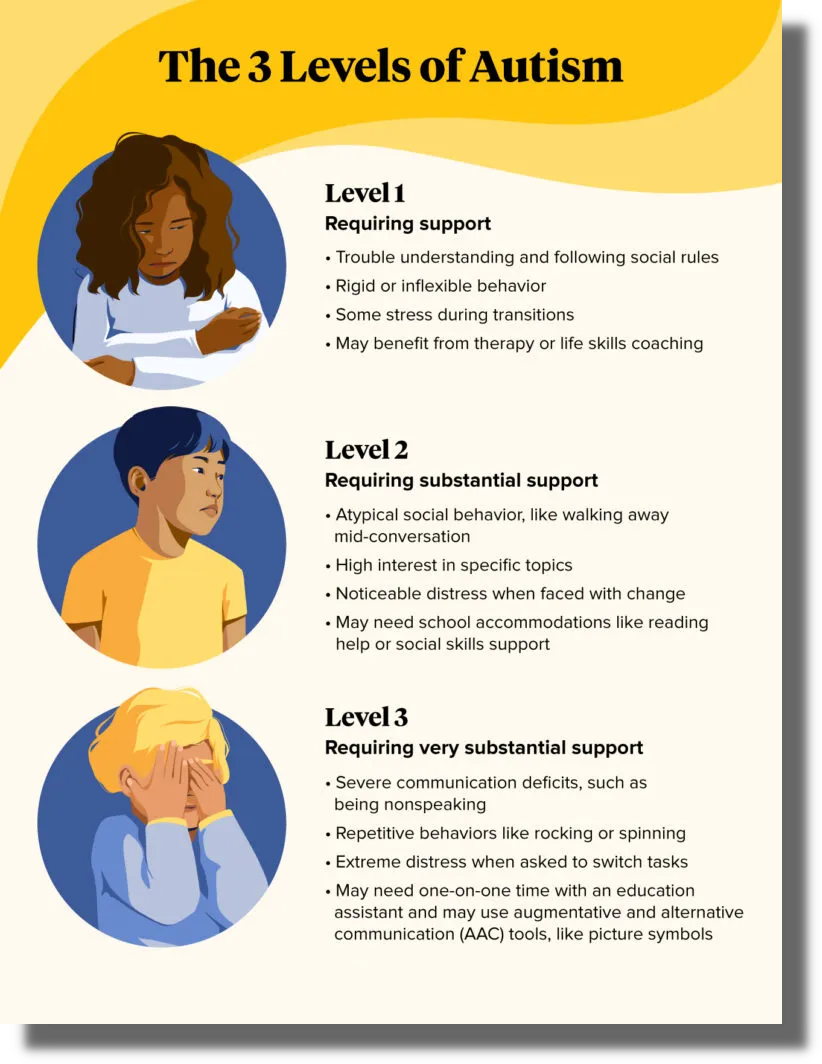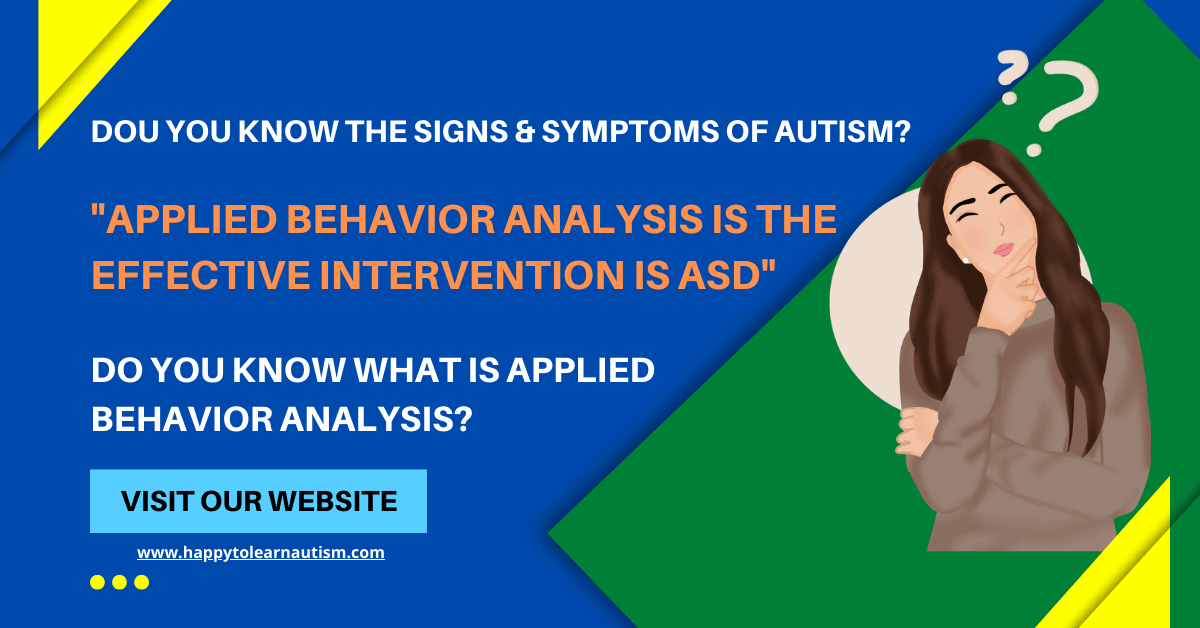Recognizing the Influence of Behavioral Autism on Every Day Life and Social Interactions
You may not realize just how deeply behavior autism affects everyday life and social communications. People on the range frequently browse a world filled up with communication hurdles and sensory overload. These challenges can lead to frustration and isolation, influencing their connections and general health.
Defining Behavior Autism and Its Qualities
Behavioral autism, usually referred to as autism range disorder (ASD), incorporates a variety of conditions defined by challenges in social communication, communication, and repeated habits. You might see that people with ASD typically have a hard time to translate social signs, which can bring about misconceptions in discussions. They may locate it hard to develop eye contact or participate in small talk, making social situations feel frustrating.
Interaction problems can manifest in various means, from postponed speech advancement to a preference for using less words. By identifying these qualities, you can promote a setting that promotes approval and urges reliable interaction, aiding individuals with autism prosper in their day-to-day interactions.
The Spectrum of Autism: Understanding Irregularity in Habits
Autism range problem (ASD) isn't a one-size-fits-all diagnosis; it varies widely amongst people. You might observe that some individuals with ASD display light symptoms, while others might encounter extra substantial difficulties. This irregularity can show up in habits, interests, and sensory level of sensitivities. You may run into people who are extremely spoken and involve quickly in discussions, while others could prefer solitary tasks or interact non-verbally.
Additionally, the means people with ASD react to sensory input can differ considerably; some may be overwhelmed by loud sounds or intense lights, whereas others thrive in promoting atmospheres. The range likewise consists of distinctions in social communications; some people may battle to translate social signs, while others navigate social settings with relative ease. Understanding this irregularity is essential, as it helps you value each person's special experience and dressmaker support to their particular demands, promoting a more inclusive atmosphere for every person.
Communication Challenges Encountered by People With Autism
When you interact with people on the autism spectrum, you might discover their special communication difficulties. They often deal with troubles with both spoken and nonverbal signs, which can impact their social communications. Recognizing these barriers is essential for cultivating better connections and support.

Verbal Interaction Troubles
Several people on the autism range experience verbal interaction difficulties that can significantly influence their everyday communications. You may discover it challenging to share your thoughts, sensations, or requires clearly. This can result in frustration for both you and those around you, as misconceptions occur. You might have a hard time with launching conversations, keeping a subject, or understanding nuances in speech. Typically, you may favor making use of basic language or recurring phrases, which can restrict your capability to participate in deeper conversations. Your tone, speed, or volume may not straighten with social expectations, creating others to misunderstand your intents. Identifying these challenges can aid you and your assistance network develop methods to improve communication and cultivate better connections with others in your every day life.
Nonverbal Interaction Obstacles
Spoken communication isn't the only difficulty people on the autism range face; nonverbal interaction obstacles can be simply as considerable. These challenges can lead to misconceptions or false impressions of social cues, making interactions really feel overwhelming or complex. By resolving nonverbal communication, you can find methods to enhance your social experiences and improve your general quality of life.
Social Interaction Effects
Social interactions can frequently feel overwhelming due to the special interaction challenges faced by individuals with autism. You may have problem with analyzing social hints, making it difficult to comprehend sarcasm or body language. This can bring about misconceptions or unpleasant moments in discussions. Additionally, launching and maintaining conversations may feel challenging, triggering anxiety in social scenarios. You might favor structured settings, making spontaneous communications uncomfortable. It's likewise usual to experience difficulty in participating in tiny talk, which can impede creating brand-new relationships. Identifying these difficulties can assist you find techniques to enhance communication, such as practicing social skills in risk-free settings or making use of aesthetic click for more help - Autism Therapist. Understanding your demands permits you to navigate social interactions with greater confidence and simplicity.
Social Interaction and Partnership Structure in Autism
While structure relationships can be challenging for people with autism, comprehending their special point of views and communication styles can foster significant links. You could observe that lots of people on the spectrum like straight communication and may deal with social signs or small talk. By being simple in your communications, you can help create an atmosphere where they really feel comfortable.
Engaging in shared rate of interests can likewise serve as a bridge to much deeper connections. Whether it's a pastime, a preferred show, or a common passion, these usual threads can open up doors to friendship.
Daily Life Routine: Browsing Difficulties and Strategies
Steering every day life routines can be especially challenging for individuals with autism, particularly when unanticipated modifications happen. You might locate comfort in having a structured timetable, as it assists you expect what's following. It's normal to really feel overwhelmed or nervous when disturbances occur. To browse these difficulties, think about implementing visual schedules or lists. These tools can provide quality and peace of mind.
Establishing a routine that consists of sensory breaks can likewise be beneficial. You can plan time-outs throughout your day to charge. It's vital to connect with those around you, letting them know your choices and requirements. This aids develop an understanding environment.
Last but not least, technique mindfulness strategies to manage stress and anxiety. Basic breathing exercises or basing strategies can make a significant difference. By including these approaches, you can boost your day-to-day regimen and minimize disruptions, making life really feel more manageable.
Staminas and Abilities of People on the Autism Spectrum
Understanding day-to-day life routines is just one aspect of the autism experience. Numerous individuals on the autism spectrum possess impressive staminas and capabilities that set them apart.
Furthermore, your memory abilities commonly beam, especially in locations of interest. Autism Behavioral Therapy. This flair for maintaining details can make you an important resource in fields like art, scientific research, or innovation. You may also display strong visual reasoning, enabling you to envision complex concepts and fix issues creatively
In addition, your unique point of view on the world can promote compassion and understanding in others, improving social communications. Welcoming these toughness not only increases your self-confidence yet additionally aids others value the varied skills you give the table.
Developing Inclusive Atmospheres for Individuals With Autism
Developing inclusive environments for individuals with autism starts with creating sensory-friendly areas that accommodate their one-of-a-kind requirements. You can likewise foster opportunities for social communication, helping to develop links and friendships. By making these changes, you'll add to an extra inviting environment for every person.
Designing Sensory-Friendly Spaces
While designing sensory-friendly areas, it's vital to mirror on the special demands of people with autism. Incorporate peaceful areas where people can reenergize and pull away when overwhelmed. Include visual routines or clear signage to aid individuals browse the room confidently.
Advertising Social Communication Opportunities
Creating sensory-friendly areas not only addresses private convenience yet also sets the stage for meaningful social communications among individuals with this website autism. To promote these communications, produce inclusive atmospheres that invite involvement. Organize organized tasks, like art classes or group games, that motivate cooperation without overwhelming sensory input. Use aesthetic aids and clear interaction to aid everybody engage conveniently. Motivate peer mentoring, matching people with autism with encouraging peers who can guide them through social situations. Additionally, consider holding normal community events that commemorate neurodiversity, cultivating acceptance and understanding among all participants. By executing these strategies, you can improve social chances, helping individuals with autism construct relationships and strengthen their social skills in a secure, inviting environment.

Often Asked Questions
Exactly How Can Friends Support A Person With Behavioral Autism?
You can sustain a good friend with behavioral autism by being individual, paying attention proactively, and respecting their boundaries. Take part in tasks they delight in, connect honestly, and develop a comfortable environment where they feel valued and comprehended.
What Resources Are Available for Parents of Kid With Autism?
You can check out various resources for parents of kids with autism, consisting of support groups, instructional internet sites, and local social work. Getting in touch with other moms and dads can additionally give useful insights and shared experiences to aid navigate difficulties.
Can Behavioral Autism Adjustment Gradually?

Yes, behavioral autism can alter over time. You might see changes in interaction, social skills, and actions as your child expands. Early treatment and assistance typically play crucial duties in these developmental adjustments.
How Do Sensory Level Of Sensitivities Impact Life?
Sensory sensitivities can make day-to-day experiences frustrating. You might fight with loud sounds or bright lights, leading to stress or avoidance. Locating environments that accommodate your demands can considerably boost your convenience and overall day-to-day live.
What Are Typical Misconceptions Concerning Behavioral Autism?
You could think behavior autism just impacts communication skills, yet it's more facility. Several presume individuals lack empathy or knowledge, which isn't true. Recognizing these mistaken beliefs helps foster acceptance and assistance for those on the spectrum.
Behavioral autism, frequently referred to as autism range problem (ASD), incorporates a variety of problems identified by obstacles in social interaction, communication, and repeated you could try here habits.Social communications can often feel frustrating due to the unique communication difficulties faced by people with autism.Creating sensory-friendly areas not just addresses specific convenience yet additionally establishes the stage for purposeful social communications amongst people with autism. Encourage peer mentoring, matching people with autism with helpful peers who can assist them with social scenarios. By carrying out these strategies, you can boost social opportunities, assisting people with autism construct friendships and strengthen their social abilities in a secure, inviting environment.